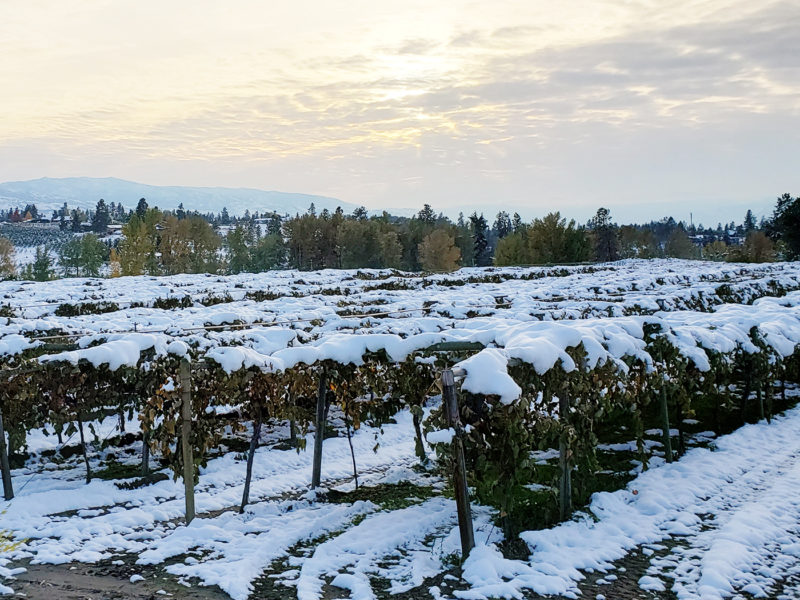Three nights of sub-zero temperatures has brought an end to the growing season for Okanagan fruit growers.
This past weekend saw temperatures dip below -5 degrees Celsius across the valley, with temperatures as low as -15 recorded in Oliver.
“We’re trying to get things off as quickly as possible,” said Troy Osborne, a director of the BC Grape Growers Association and who oversees vineyards for Arterra Wines Canada Inc., one of the province’s largest grape growers and producer of wines sold under the Jackson-Triggs, Inniskillin Okanagan, Sumac Ridge and See Ya Later Ranch labels.
While the majority of grapes were in, Arterra and its growers continue to pull in late-season varieties that benefit from extra hang-time such as Cabernet Sauvignon, Merlot, Syrah and Zinfandel.
The freeze means a greater risked of dropped fruit, never a desireable outcome, and particularly not this year when quality has been exceptional. A cool wet spring delivered a lighter crop load, and moderate conditions during the season kept sugars in check leaving flavours to concentrate during the long fall.
The freeze ended that, though it came too early to make ice wines. Wineries with fruit left to come in were scrambling to process the remains of the regular season, while others are waiting for the elements to work their magic on the late-harvest fruit.
Just eight wineries have registered their intention to make the sweet dessert wine, which can only be made from frozen grapes when temperatures dip below -8 degrees Celsius. The registration deadline this year is November 6.
BC Tree Fruits, meanwhile, reports that its growers have yet to deliver 10% of their anticipated harvest.
Co-op CEO Warren Sarafinchan said any crop hit by sub-zero temperatures would have suffered significant damage.
According to the BC Ministry of Agriculture, just a handful of growers have filed notices of loss with Production Insurance.
“It is too early to determine to what extent the freezing temperature experienced over the past weekend in the Okanagan will result in damaged fruit,” the ministry said. “However, we expect to receive more [notices] over the next week as damage starts to manifest on unharvested apples.”


 BC farms deliver big impact
BC farms deliver big impact